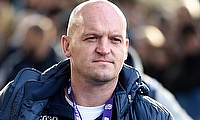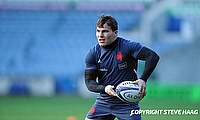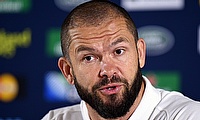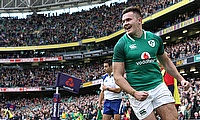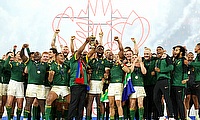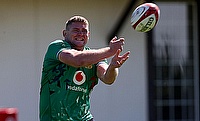Depth and Character: Do Wales have both?
'Four year cycles' is a term that fell into the laps of rugby fans last weekend as the Six Nations kicked off. Ahead of England's 'Brave New Dawn' it was also used to determine what lay in store for both Italy and France.
It remains difficult to pinpoint how a one-World Cup coaching setup has become so desirable “ the only World Champions to represent the Northern Hemisphere, England, was built on stability that saw Sir Clive Woodward preside over two global competitions.
Similar stability is what Wales is currently built on. Warren Gatland has entered his fifth campaign and, judging by preparations for both the World Cup and the Six Nations, has a clear progression plan. When you consider that half of his adversaries are in transitional phases, it puts Wales in an envious position.
One thing Gatland has striven for during his time at the WRU is to increase the player pool available to him. At times, he has self-harmed in this respect; ignoring those capable to perform “ particularly if they ply their trade outside of Wales “ in favour of those untried. It has been to Gatland's undoing in the past. However, having stubbornly stuck to his belief, Wales were able to overcome a much-fancied Ireland side without established parts of Gatland's team.
'Gatland's Law' seems to have been more lenient this time around, and the New Zealander was rewarded by the scrummaging performance of Rhys Gill. The fundamentally important aspect to stability is that Wales' way of playing is now instilled into every player that has been involved with the setup “ enabling those new to the international scene to slot in almost seamlessly. As debate rages over the legitimacy of England's new breed as international players, Gill, Alex Cuthbert and Justin Tipuric were introduced. The latter proved crucial to Wales' cause “ with two key turnovers in the second half.
In Dublin, Wales answered two prevalent questions that face their chances of winning the Six Nations. The first being the phrase that seems to have kept BBC pundit Jeremy Guscott in employment for precisely this time of year “ that Wales lack the mental strength to be considered a championship-winning side.
Yet this was answered significantly. Having gone into half-time 10-5 despite controlling proceedings, a side bereft of confidence, of 'mental strength' would have found a fervent Aviva Stadium too overbearing. Instead Wales rallied, and in doing so fought off both an Irish fight back and a Bradley Davies yellow-which-should-have-been-red card. For the second time in four months Wales was classier and more clinical in possession against the Irish powerhouse outfit.
Ireland is based on power; their main defensive tactic is to keep the ball-carrier on his feet, relying on strength in numbers to provide turnovers in the form of a maul becoming dormant. And whilst it is premature to say it has been found out by Warren Gatland, the number of times Wales sought to generate possession through 'up and down' phases “ where Mike Phillips found a forward runner, he hit the deck as quickly as possible, and the scrum-half distributed to the next man, and the next man, and the next man “ indicated that Wales was all too aware that Declan Kidney's men would struggle for parity should a breakdown ensue.
As Wales trod back into the changing rooms at the interval it was apparent that Warburton would not return for the second half “ and winning without such an inspirational leader went some way to measuring character. Much has been made of Warburton's diligence in what is still his first year as captain, but teams that have made their mark at elite level have trusted men in-waiting. When New Zealand lost Dan Carter and worried over Richie McCaw's fitness at the World Cup, Piri Weepu's ability to retain team unity kept the All Blacks on course.
On Sunday, former Wales captain Ryan Jones did similar; leading from the back row with carry after carry to galvanise a side counterpunched by Rory Best's try and Warburton's withdrawal from the game. It was also notable that on the final whistle, the first bibbed shirt to race on to the field and congratulate his team-mates was Andy Powell. The merit of which he was included could be argued for all of time, but given the demands of another pre-tournament in Poland, his quirkiness would have been invaluable in lifting spirits after triple training sessions. In the grand scheme of things, it may seem insignificant; in fact if you had blinked you may have missed it, but it all adds to the sum of camp morale “ something that when coupled with ability can fuel a Championship-winning campaign.


